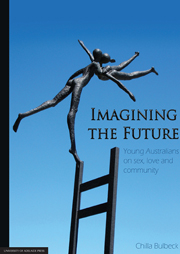Book contents
- Frontmatter
- Contents
- Acknowledgements
- Introduction
- 1 Essaying difference: Comparing essays across the sub-samples
- 2 Learning from their parents: Inter-generational change and continuity
- 3 Emotional literacy and domestic relations
- 4 Global visions and cramped horizons: Stories of class
- 5 ‘Intimate’ citizenship?
- Conclusion: Equality in the rhetoric, difference in reality
- Appendix 1 The questionnaires
- Appendix 2 The sample
- Appendix 3 Survey statistics
- References
- Index
2 - Learning from their parents: Inter-generational change and continuity
Published online by Cambridge University Press: 05 June 2013
- Frontmatter
- Contents
- Acknowledgements
- Introduction
- 1 Essaying difference: Comparing essays across the sub-samples
- 2 Learning from their parents: Inter-generational change and continuity
- 3 Emotional literacy and domestic relations
- 4 Global visions and cramped horizons: Stories of class
- 5 ‘Intimate’ citizenship?
- Conclusion: Equality in the rhetoric, difference in reality
- Appendix 1 The questionnaires
- Appendix 2 The sample
- Appendix 3 Survey statistics
- References
- Index
Summary
Introduction
The women's rights campaign of 2020 turned out to be a war against men. Masculinity prevailed and we fought females back and out of Earth. They now reside on the moon (except my wife). We have learnt that by doing stupid feminism surveys that it seeds the idea that feminism has a right to live. (male, Catholic college student, South Australia, who describes himself as ‘A man, Aussie, bored already, not female, a mad mad man, young and immature’)
In my first interviews with women of the baby-boomer generation for my book Living Feminism (1997), I asked ‘How have the lives of women changed as a result of the women's movement?’ Several interviewees began to sketch their answers and then added, ‘You must talk to my daughter.’ These mothers were proud of, and a little awed by, daughters who were apprenticed jewellers, in the police force, who believed they could do anything. Because they reached for their daughters' stories to highlight the changes in their own lives, I began asking each interviewee to compare her mother's, her own and her daughter's life and opportunities (see Bulbeck 1997: 9). I also decided to interview some of the daughters, asking them to reflect on the differences between their mother's generation and their own. And I decided to write another book, based on the experiences of these young women who believed they had inherited the whole wide world.
- Type
- Chapter
- Information
- Imagining the FutureYoung Australians on sex, love and community, pp. 61 - 90Publisher: The University of Adelaide PressPrint publication year: 2012



